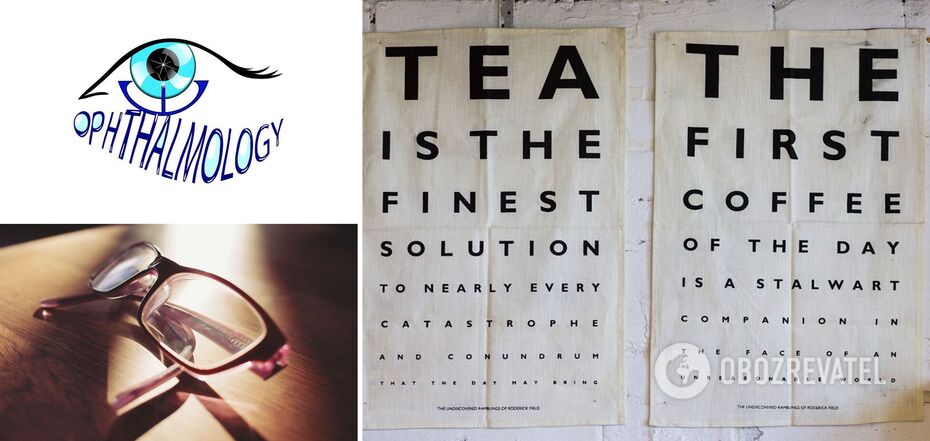Society
What vitamins are necessary for eye health: nutritionists reveal the secrets
Vision is one of the most important human senses, without which it is impossible to imagine a full life. The eyes are an organ that requires care and many vitamins and nutrients to function properly. Taking care of your eyes is a daily task and the best contribution to your quality and colorful life. One of the conditions for maintaining vision is a balanced diet.
Unfortunately, serious ophthalmic diseases (glaucoma, myopia, astigmatism, etc.) cannot be cured by a proper diet alone. However, substances derived from food can definitely affect eye health. OBOZREVATEL has analyzed medical research and made a selection of the main vitamins needed for clear vision and the foods that contain them.
Vitamin A
This vitamin plays a key role in the health of our eyes as it supports the cornea, the outer membrane of the eye. The vitamin also helps us see in low light conditions. Studies show that a diet high in vitamin A helps prevent cataracts and age-related vision degeneration.
To replenish the level of the vitamin in your body, be sure to include sweet potatoes, leafy green vegetables, peppers, and pumpkin in your menu.
Vitamin E
Scientists say that oxidative processes arising from an imbalance of antioxidants and free radicals have a negative impact on the eyes. Vitamin E can prevent this.
To maintain the proper content of the vitamin in the body, you need to have nuts, seeds, and vegetable oils on your table. Avocados, salmon, and green vegetables are also good sources of the vitamin.
Vitamin C
Lemon, orange, grapefruit, broccoli, bell peppers, and cabbage are the best sources of vitamin C. Being a strong antioxidant, it protects the eyes from free radicals and can also reduce the risk of cataracts.
For example, a study showed that daily intake of more than 490 mg of vitamin C reduced the development of cataracts by 75% compared to a lower dosage.
Vitamins B6, B9, B12, and riboflavin
Scientists have studied the effect of B vitamins on eye health. Thus, it was found that the combination of vitamins B6, B9 and B12 can reduce the level of homocysteine in the body, which, in turn, is associated with inflammation and an increased risk of age-related macular degeneration.
Another B vitamin (B2), better known as riboflavin, can reduce the oxidative effects of free radicals and prevent cataracts. Thus, the study confirmed a 31-51% reduction in the risk of cataracts in participants who included 1.6-2.2 mg of riboflavin in their diet daily.
You can replenish the supply of these vitamins with beef, fatty fish (tuna, salmon, trout), cereals, yogurt, eggs, liver and offal.
Niacin
The main function of niacin is to convert food into energy. Some studies have shown that this particular vitamin can help prevent glaucoma, a condition that damages the optic nerve. Include fish, legumes, mushrooms, peanuts, poultry, and beef in your diet and your eyes will be healthier.
Omega-3 fatty acids
Omega-3s are polyunsaturated fats. In addition to affecting the formation of eye cells, they may also play a role in preventing diabetic retinopathy. Scientists say that the necessary level of fat benefits people with dry eye syndrome by increasing tear production.
You can replenish your supply of healthy fats from fish, soybeans, seeds, nuts, canola and olive oils.
Lutein and zeaxanthin
These vitamins belong to the family of carotenoids, a group of useful compounds synthesized by plants. They can be found in the macula and retina of our eyes. They help filter out dangerous blue light, thus protecting us from damage.
Participants in the experiment who took lutein supplements 15 mg three times a week for two years reported improved vision.
Supplements are not necessary if you enrich your diet with foods such as spinach and kale, which are a natural source of carotenoids.
Thiamine
Similar to niacin, thiamine converts food into energy and is involved in the proper functioning of cells. This vitamin effectively fights cataracts. Thus, a study involving 2900 people showed that a thiamine-enriched diet reduces the risk of developing cataracts by 40%.
Thiamine is found in whole grain products, meat and fish, and is sometimes added to breakfast cereals, pasta and bread.
Environmental influences, continuous digitalization, and genetic predisposition can cause visual impairment and various diseases. Eyes, like any organ, need care and attention. Treatment should be carried out under the supervision of specialists. However, we can and should enrich our body with vitamins and nutrients that will give our eyes relief and health even in everyday life.































